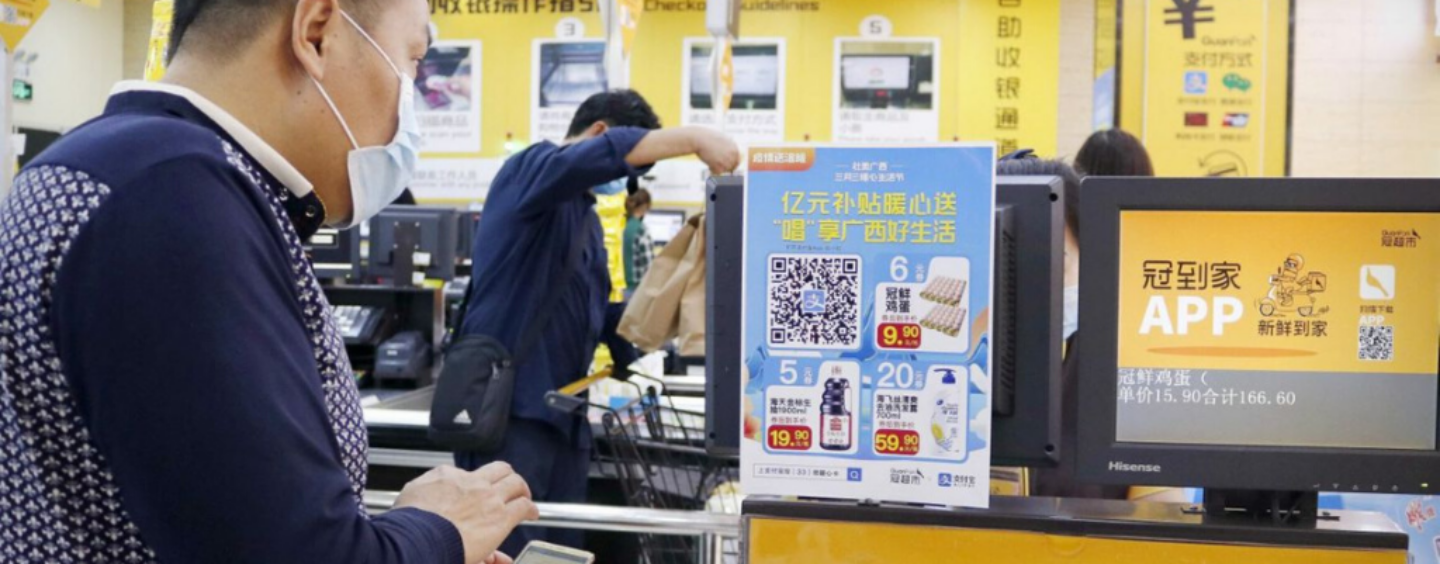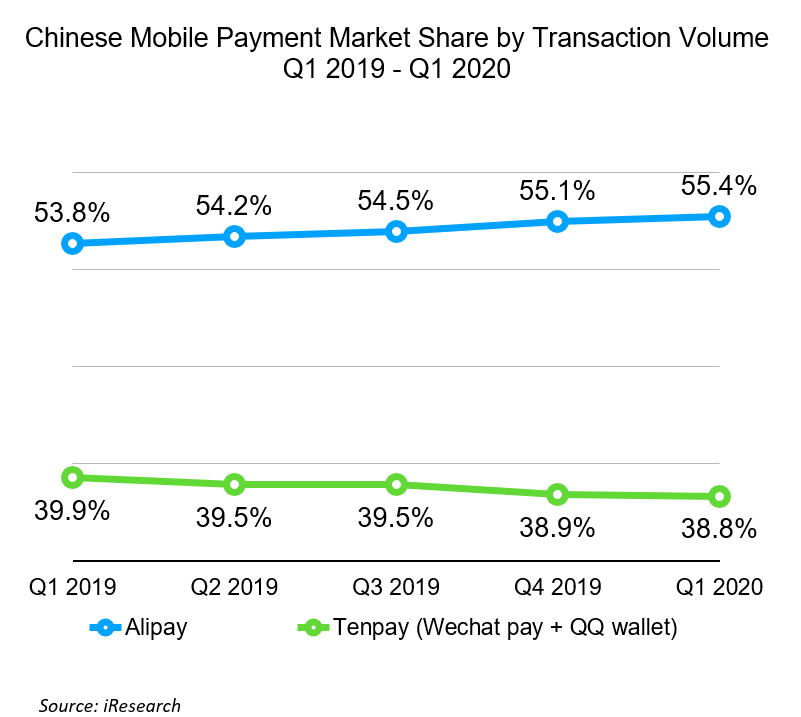
Alipay Maintains Dominance in China Over Tencent’s WeChat Pay and QQ Wallet
by Fintech News Hong Kong July 9, 2020A new report by iResearch Consulting Group indicates that the total size of third-party mobile payment transactions in China reduced by 4% for the first time in the first quarter of 2020 to compared to the same period last year as a result of the COVID-19 pandemic.
Despite the drop, data from 2020 Q1 Chinese Third-party Mobile Payments Market Report shows that Ant Group’s Alipay has retained its leadership position with a steady increase over the last four quarters, rising to 55.4% market share, a 1.6% increase year-on-year.
Tencent’s Tenpay which owns WeChat Pay and QQ Wallet comes in second with a market share of 38.8%.

Prior to COVID-19, China’s offline businesses have been a key driver for mobile payments with a majority of businesses – including shopping malls and restaurants – accepting cashless payments via QR code scans or face scans.
With lockdown restriction in place, offline businesses were forced to close or severely limit their businesses, leading to the offline barcode transactions dropping by 30.4% from the previous quarter, to RMB6.7 trillion (RM4.08 trillion).
Growth in Sight Amidst Digital Acceleration
As China’s economy recovers and offline businesses resume their operations, iResearch anticipates the Chinese digital payment market to rebound in the second quarter of 2020. To establish future market dominance, the report also points out that third-party payment solution providers should look beyond payment volume alone and work on their capability to integrate and offer consumers and business clients, additional technology solutions within their applications that can be viewed as instrumental to the market moving forward.
The lockdown restrictions have caused Chinese businesses to accelerate their digital transformation – particularly for the benefit of the country’s service industry. Alipay is well-positioned to empower this advancement across the industry, having announced in March a three-year plan to support the digital transformation of 40 million service providers in China by offering a comprehensive digital daily life services platform and a go-to-app for consumers to quickly find service providers to meet their daily life needs.
In a LinkedIn post, Alipay said
“Payment is not the end game, but the beginning of a wide range of services that enrich daily life. We are dedicated to supporting the digital transformation of the services industry by leveraging our technologies, instead of just focusing on the payment market share.”
Alipay’s Digital Daily Life Services
Originally introduced in 2004 as a platform to allow sellers and buyers to trade online, Alipay has since evolved into a convenient go-to app for Chinese consumers to access all types of daily life services with the potential to reach a 900 million user base.
Since the launch of its digital daily life services platform, there are now over two million Alipay mini-programs with over 600 million monthly active users. This was in response to Tencent’s wildly successful mining programs in WeChat.
The use of the mini programs has also benefitted recruiters and local administrators. Major recruitment firms in China such as Zhaopin.com, Liepin.com, and Doumi.com have utilised the service to advertise job vacancies from over 1,000 companies in over 600 industries. Likewise, administrators in over 300 cities and 400 counties in China used the programs to provide digital public services to citizens, such as collecting one’s social security funds, housing funds and issuing certificates.
Along the way, Alipay looks to expand its digital daily life services platform globally by working with international partners, including e-wallet operators, banks and payment providers, to support merchants better connect with consumers around the world, enabling consumers to use their preferred mobile wallet app to enjoy the same daily life services that they could easily access at home, truly empowering digital transformation everywhere.








